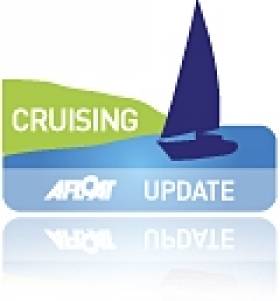Displaying items by tag: Regulations:
Cruising Association Plans Mediterranean Sailing Seminar
Every year, at the Cruising Association's London headquarters in Limehouse, it holds a one-day seminar for those planning to cruise in the Mediterranean. Open to both members and non-members, this year's event was a sell-out with more than 90 cruising sailors taking part. To cater for the growing demand for this type of event, the Med Section is considering running two seminars a year, with a second at another venue, in late autumn.
At this year's seminar, experts from the Cruising Association's membership led sessions on:
Eco-friendly cruising: avoiding anchoring damage, reducing and recycling waste, minimising harm from grey and black water discharges, which paints and cleaners to use on hulls and decks, and preventing pollution from engines.
Albania: a new cruising destination; ports of entry, paperwork, personal security, chart accuracy, safe anchorages, restricted areas, marinas – few and small at the moment.
Healthcare: insurance, the European healthcare scheme, prescription and over-the-counter drugs, European names for UK drugs, first-aid box contents, on-board injuries, gastric problems, sunburn, dehydration, heat stroke, insects, jelly fish, and more.
Weather: typical weather patterns, national forecasts, internet forecasts, different weather models, GRIBs, Navtex, how to interpret and evaluate forecasts, forecasting from your own observations.
Regulations: boat papers, radio licences, insurance, crew lists, passports and visas, International Certificate of Competence, CEVNI, VAT, pollution control, residency, personal taxation.
Fitting-out: awnings and biminis, drinking water, swimming, scuba and snorkels, gas, refrigeration, wind and solar generation, anchoring – rodes, scope and anchor types, bow-to and stern-to mooring, tenders, passerelles, tools and spares.
At the end of the day, delegates were asked to suggest their own tactics and techniques to improve Mediterranean cruising. Many of these involved alcohol, but the prize for the best suggestion was to anchor from the stern, to encourage airflow through the boat.
Each year, the Med Section publishes a summary of members' cruising plans to make it easier for members to arrange to meet up during the summer. The Section is organising a rally on the island of Uglyan in Croatia in June this year, and a rally in the Peloponnese is planned for 2012.
Membership of the Med Section is free to any member of the Cruising Association.





























































